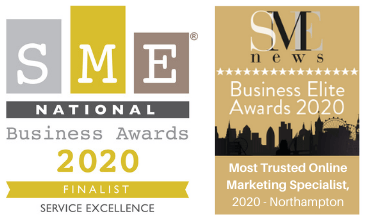Real-Time ChatGPT Search Indexing: What Law Firms Need to Know
In a significant upgrade, OpenAI’s ChatGPT now includes a real-time search feature, allowing users to access up-to-the-minute information directly from the web. With the ability to pull live data, including court decisions, legal news, and compliance updates, ChatGPT’s search function could become a valuable tool for lawyers who need current, reliable information on demand. In this post, we break down what law firms need to know about ChatGPT’s search indexing system and how it can be used to enhance legal research, client service, and firm visibility online.
Contents
- How Legal Professionals Can Leverage ChatGPT’s Real-Time Search
- Understanding ChatGPT’s Indexing Framework
- Technical Requirements for Indexing
- Other Key Considerations for Law Firms Using ChatGPT’s Search
- Legal Visibility and Benefits of ChatGPT’s Search Function
- Preparing for Future Developments in AI-Powered Legal Search
- Optimise Your Site for ChatGPT’s Indexing System
How Legal Professionals Can Leverage ChatGPT’s Real-Time Search
ChatGPT’s real-time search function brings distinct benefits and functionalities for law firms looking to stay updated on the latest legal developments:
1. Real-time legal news and information
ChatGPT’s new search capability enables it to pull information from a wide range of online sources, including news articles, case summaries, and other time-sensitive legal resources. Lawyers can receive updates on recent rulings, legislative changes, and emerging legal trends by simply querying ChatGPT in a conversational format.
2. Source transparency for reliable verification
As you know, legal work relies heavily on verified sources. ChatGPT helps address this need through its “Sources” sidebar, which displays links to all referenced content within its responses. Users can follow these links to the original sources to verify the accuracy and context of the information. This added layer of transparency enables lawyers to conduct quick preliminary research without sacrificing reliability.
3. Automatic and manual query triggers
Users can initiate searches automatically by posing a question or manually by activating the search icon. This flexibility allows solicitors to find the exact information they need for case research, document drafting, or client enquiries.
Understanding ChatGPT’s Indexing Framework
Behind ChatGPT’s real-time search capabilities lies a complex indexing system designed to balance real-time access with rigorous content verification. The platform uses a combination of Bing’s search index and OpenAI’s proprietary systems to ensure that its responses remain accurate and updated.
To maintain accurate, up-to-date search results, ChatGPT employs three specialised crawlers:
1. OAI-SearchBot
Considered the primary ChatGPT search indexing crawler, it is responsible for collecting content from web pages that ChatGPT users may request. For law firms, ensuring accessibility to OAI-SearchBot is essential if they want their website content, such as blog posts, case studies, and practice area information, to appear in ChatGPT’s responses.
2. ChatGPT-User
This crawler facilitates real-time user queries by retrieving specific information as requested in conversations. It powers ChatGPT’s ability to pull in relevant data quickly, making it ideal for time-sensitive legal queries and client updates.
3. GPTBot
This bot is mainly involved in training ChatGPT’s model and doesn’t impact real-time search visibility. Law firms concerned about data privacy can block GPTBot if desired, as this does not affect the visibility of their content in real-time search results.
Technical Requirements for Indexing
If you are interested in your legal practice appearing in ChatGPT’s search responses, you have to ensure your website is technically optimised for the AI platform’s crawlers. This involves setting permissions within the robots.txt file to allow access specifically to OAI-SearchBot. This configuration will enable ChatGPT to retrieve information for real-time search without inadvertently allowing data to be used for AI model training.
Once permissions are set, OpenAI’s systems take about 24 hours to reflect any updates. Therefore, it would be wise to ensure timely adjustments.
Other Key Considerations for Law Firms Using ChatGPT’s Search
While ChatGPT’s search feature offers notable benefits, you must be aware of a few key considerations:
1. Content freshness and legal accuracy
Although ChatGPT is designed to access recent information, its time sensitivity may occasionally vary. For example, some tests have shown minor delays in recognising the latest updates. For critical matters, it’s advisable to cross-reference any urgent information with other legal research tools to confirm accuracy.
2. Priority for official sources
Initial testing suggests that ChatGPT may prioritise content from major publications or partnered news sources, such as Reuters and the Financial Times. Law firms may need to optimise their SEO and indexing strategies to ensure that their thought leadership and legal analysis pieces rank well within ChatGPT’s system, especially when competing with larger or partnered sources.
3. Consideration of privacy for confidential client information
As ChatGPT’s popularity grows, law firms need to set clear policies on which types of information may be shared with AI tools. Lawyers should refrain from disclosing confidential client information or proprietary insights when using ChatGPT for general research, as ChatGPT’s privacy and retention policies differ from those of dedicated legal research platforms.
Legal Visibility and Benefits of ChatGPT’s Search Function
When your website is optimised correctly, ChatGPT’s search indexing offers several unique advantages that can support client service, business development, and legal research:
1. Enhanced web traffic attribution
ChatGPT’s source attribution includes UTM parameters in outbound links, enabling law firms to track referral traffic from ChatGPT within their analytics platforms. This allows legal practices to assess how frequently potential clients or colleagues discover their content through ChatGPT, providing insights into its visibility and reach.
2. Improved content discovery
Given that a single query in ChatGPT can generate multiple citations, law firms may see an increase in the discoverability of their practice area content, articles, or legal guides. This wider exposure could draw more readers and potential clients to the firm’s website.
3. Interactive maps for location-specific queries
For legal practices with multiple office locations or those focusing on specific legal specialisms, ChatGPT’s search feature includes interactive maps. Users can access information relevant to a particular geographic area, helping clients locate local firms or legal resources quickly.
Preparing for Future Developments in AI-Powered Legal Search
OpenAI’s roadmap for ChatGPT includes plans to extend its search capabilities into specific sectors. To prepare, law firms can optimise their websites for ChatGPT search indexing requirements, regularly update their robots.txt settings, and prioritise accurate, timely content to boost their search visibility. By staying updated on these AI-driven advancements, lawyers and solicitors can enjoy better online visibility and strategically position themselves in front of potential clients.
Optimise Your Site for ChatGPT’s Indexing System
ChatGPT’s real-time search is more than just a conversational tool—it’s a gateway to dynamic, AI-enhanced legal research and client engagement. By understanding its indexing framework and adjusting their online presence to accommodate ChatGPT’s crawlers, law firms can expand their digital reach and reinforce their reputation for reliable, up-to-date legal insights.
At Kinetic Traffic, we can help law firms enhance their online visibility by optimising websites for AI-powered search platforms such as ChatGPT. Let us refine your site’s structure and content to ensure your legal insights are accessible to potential clients searching for reliable, up-to-date information. Get in touch today!
Lead your law firm towards the best results.
Get in touch with our team and let’s talk about your marketing needs.







